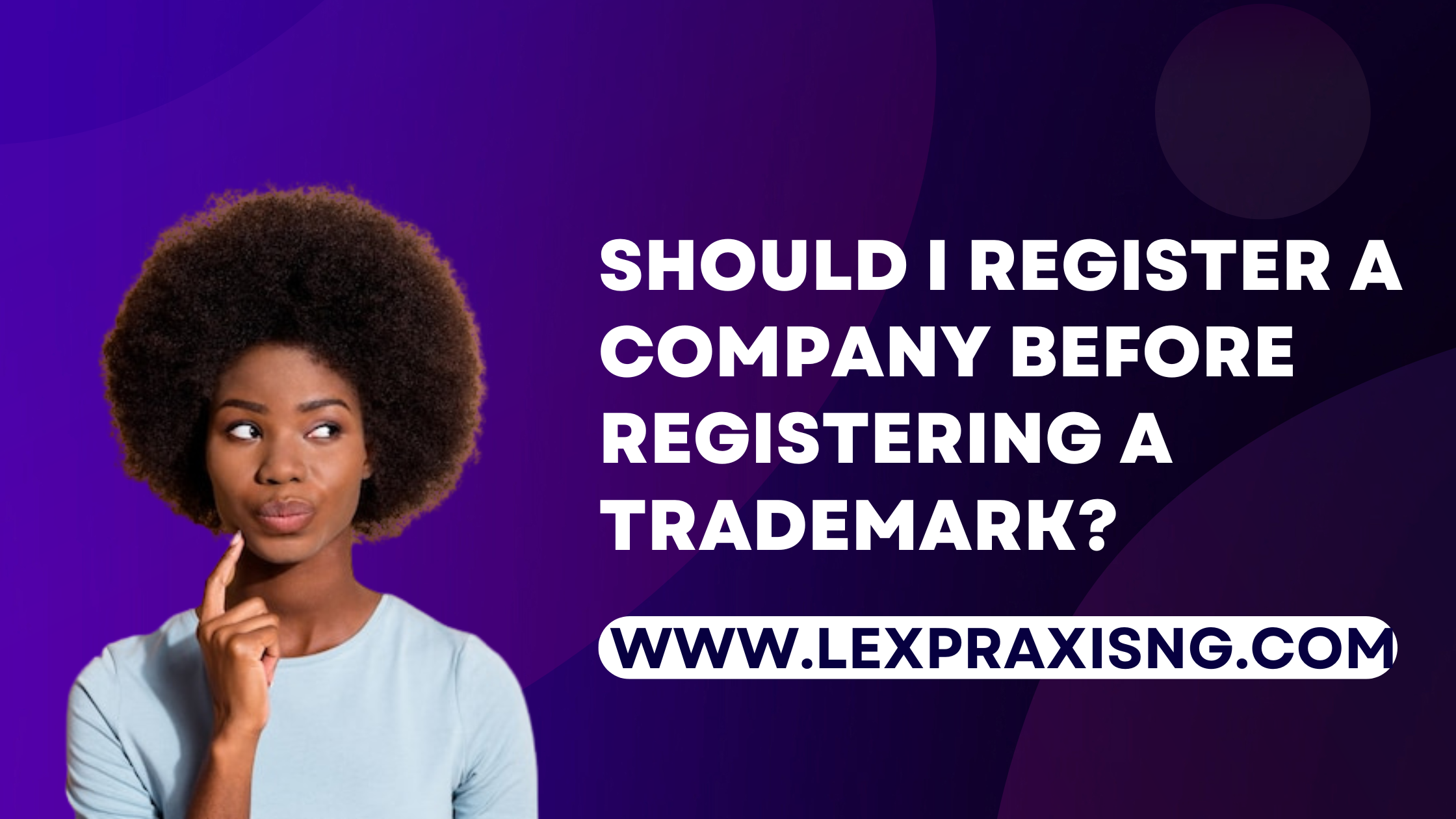When I speak with entrepreneurs and founders who are about to start their businesses in Nigeria, I often get asked the question, “Should I register my company before registering a trademark?” In this article, I will share my thoughts on this topic. By the end, I hope you will be able to make an informed decision about whether registering both your company and a trademark should be a priority for your business.
WHAT IS THE DIFFERENCE BETWEEN REGISTERING A COMPANY AND A TRADEMARK?
In Nigeria, all companies are required to register with the Corporate Affairs Commission, regardless of whether they are private or public limited companies, or Limited Partnerships. The Companies and Allied Matters Act provides the legal framework for company registration in the country. A trademark is a type of intellectual property that includes a word, logo, slogan, or a combination of these that represents a company or an individual. It serves to identify your business or brand and distinguish it from others. Trademark registration is governed by the Trademarks Act of 1971, and it is processed through the Trademark Registry Department under the Ministry of Industry, Trade and Investment. Company registration is a one-time process; however, companies must file annual returns to keep the Corporate Affairs Commission updated about their status. On the other hand, a trademark is initially valid for seven years and can be renewed for additional periods of 14 years.
WHAT DOES REGISTERING A COMPANY AND A TRADEMARK DO FOR MY BUSINESS?
When you register a company, you receive legal recognition and permission to conduct business in Nigeria under the approved name. This registration grants your company the status of a separate legal entity, allowing it to operate under its name, buy and sell property, and engage in legal actions, such as suing or being sued. However, third parties are prohibited from using your registered company name for their own businesses. Unfortunately, if a company’s name becomes well-known or valuable, a third party may still register that name as a trademark if the company’s owners do not take the necessary steps to protect it by registering the name as a trademark.
Registering a trademark provides you or your business with legal rights to a specific name, logo, or slogan. This means that others are restricted from using your trademark without your permission. You can think of trademark registration as being similar to obtaining a certificate of occupancy for a property—it’s proof of true ownership! One interesting aspect of registering your brand name, logo, or slogan as a trademark is that trademark laws prevent third parties from using it. Even if you have registered a name as a trademark without registering it as a company with the Corporate Affairs Commission, you still have the right to object if someone else tries to register that name. You can request that the Corporate Affairs Commission refrain from approving the name for a third party because it is already a registered trademark. However, this protection does not apply to registering a company in the same way.
SHOULD I REGISTER A COMPANY BEFORE REGISTERING A TRADEMARK?
There is no legal requirement to register a company before registering a trademark. You can register a trademark as an individual without needing to have a company. For example, an artist who is known by a stage name different from their birth name may choose to protect their rights to that name by registering it as a trademark.
As a business owner, it is important to understand the benefits of both company registration and trademark registration. Once you secure the legal permission to start and operate your business under a specific name through company registration, I recommend taking steps to protect that name. This can be achieved through trademark registration, especially as your business begins to engage with clients. Protecting the name of your business, product, service, or brand is crucial for your success.
In today’s digital era, becoming a go-to business is relatively easier. However, the challenge of building a popular brand is that such popularity can attract competitors who may attempt to exploit your brand name to gain their share of the market. If you haven’t taken steps to register your company’s trademark early in your business journey, you risk losing ground to these competitors.
CONCLUSION
Registering a company and a trademark are both crucial steps for your business. While company registration offers certain rights and privileges, it does not provide the same protections that a trademark does. If you still have concerns about the necessity of securing both company and trademark registrations, consider this: If well-known global brands like Dolce & Gabbana, Starbucks, and Louis Vuitton frequently face trademark infringement issues, what makes you think your brand is immune to being copied by competitors?
For further enquiries about this topic, please contact us through the Whatsapp icon on this page or HERE, and we’ll respond to you.
